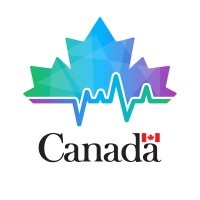
Open
Formations de courte durée (COUD) — Information technology and engineering
Last Update: October 27, 2025
QC, Canada
Training initiative enhancing IT and engineering workforce skills
Grant and Funding
At a glance
Funding available
Financing goals
Improve employee retention
Develop employee skills
Eligible Funding
- Up to 100% of project cost
Timeline
- Unspecified
Eligible candidates
Eligible Industries
- Information and cultural industries
- Educational services
Location
- Quebec
Legal structures
- Non-profit
- Public or Parapublic institution
- For-profit business
- Non-financial cooperative
Annual revenue
- All revenue ranges
Organisation size
- All organization sizes
Audience
- All groups
Non-profit candidates
Sector of operation
- Higher Education
- Employment and Training
- Diversity and Inclusion
Target groups
- Women & girls
- Business owners / entrepreneurs
- Academia / students
Revenue structures
- All structures
Scope
- Local
- Regional
- Provincial
Overview
The Formations de courte durée (COUD) program focuses on IT and engineering, offering training adapted to business needs and supporting work-study initiatives, with eligible projects funded up to 100% of admissible expenses. It aims to enhance workforce skills through tailored professional, technical, or university programs.
Activities funded
- Formation of professionals in information technology through the dissemination of an existing professional, technical, or university training program.
- Adaptation of an existing professional, technical, or university training program to meet business needs in information technology.
- Formation of engineers through the dissemination or adaptation of a technical training program in eligible engineering professions.
- Projects that enable personnel training during working hours using the work-study alternation formula.
- Formation of managers in fields like system management, software design, programming, web design, network technology, including cybersecurity.
- Formation of engineering technologists and technicians, including sectors like civil, mechanical, industrial engineering, mining, architecture, electrical, chemical, and aerospace engineering.
- Integration of good human resource practices related to the integration of women into the job market, particularly in engineering and IT.
Examples of admissible projects:
$ 144,000
Creating sustainable packaging solutions for the food industry
$ 96,000
Launching a community theater with inclusive arts programs
$ 64,000
Enhancing local arts center with new digital installations
$ 200,000
Launching a tech hub for AI startups in urban area
$ 120,000
Developing a sustainable farming initiative for local produce
$ 80,000
Developing an educational program for remote learning technologies
Eligibility
- The applicant must be a collective promoter eligible to submit a financial aid request under the program.
- The applicant's project must be related to the fields of engineering and information technology.
- The project should aim to train professionals through the adaptation or dissemination of existing vocational, technical, or university programs that meet business needs.
- The project must comply with the criteria for offering training that includes work-study placements.
- The targeted business must be either a private for-profit company, a cooperative, or a non-profit organization.
- Projects must align with the objectives to enhance workforce skills in prioritized professions identified by the labor market partners commission.
- The training project must include employer support for the staff’s enrollment in the proposed courses.
- The applicant must associate with a recognized establishment by the Ministry of Education of Quebec (MEQ) or Ministry of Higher Education (MES) or a Quebec university.
Who is eligible?
- Private for-profit companies
- Cooperatives
- Non-profit organizations
Eligible expenses
- Salaries of individuals in training, up to $30 per hour, with a maximum of $25,000 for male workers and $30,000 for female workers.
- Salaries of the teaching staff.
- Salaries of personnel supporting trainee success.
- Salaries of mentors sharing expertise with female participants.
- Salaries of those responsible for integration and job retention of new employees, up to $65 per hour.
- Consultant fees, up to $150 per hour, exceptionally up to $350 per hour.
- Fees of training personnel, up to $150 per hour.
- Fees of accompanying personnel.
- Costs for material adaptation depending on disability.
- Development or adaptation costs for educational and instructional materials.
- Purchase costs for educational and instructional materials.
- Fees for registration for equivalency exams.
- Costs for project promotion to potential female participants.
- Administrative and management costs borne by the delegated organization or collective promoter, up to 10% of eligible expenses.
- Indirect costs for trainers and trainees, such as travel and meal expenses, in alignment with Treasury Board directives.
- 50% reimbursement of expenses related to training for those supervising trainees, including training costs and trainee salaries, up to $25 per hour.
- Salaries for independent supervisors when no in-house staff has IT competencies for supervision.
How to apply
1
Consultation of collective promoters
Consult the list of eligible collective promoters to find an active partner in your region or in your industry.
2
Preparation of the request
- Develop a training project that meets the program criteria and addresses the needs of your company.
- Include the budget and all relevant information in the application.
- Confirm that the targeted training meets the needs of businesses and aims at an eligible profession.
3
Completion of the required documents
- Fill out the grant application form.
- Prepare the budget file for the grant application covering eligible expenses.
4
Transmission of the request
Send the required documents and any pertinent information by email to the address: partenaires@mess.gouv.qc.ca.
5
Submission Confirmation and Follow-up
- Wait for a processing period of 20 business days to receive a response.
- In case of incomplete application, be ready to provide additional required information.
Additional information
- The program includes specific measures to enhance participation of women in engineering and information technology professions, such as mentorship opportunities and increased promotional activities targeting female participants.
- There are additional financial considerations for female participants, including an increased salary reimbursement of $5,000.
- Eligible training projects must incorporate work placements, allowing employees to participate during work hours through a work-study model.
- All training content and tools must be available in French unless provided by an English-language educational institution.
- Promoters must inform regional labor market partners before submitting their projects for financial aid consideration.
- Indirect expenses for trainers and trainees, such as travel and meal costs, are permissible based on specific directives.
- Communication with an eligible collective promoter in the relevant sector or region is necessary to participate in the program.
- Collaborative efforts are encouraged between approved promoters and recognized educational institutions to tailor training programs to company and employee needs.
- The processing time for grant applications is approximately 20 working days, provided all necessary documents are submitted.
- Incomplete applications will not be processed, and the applicant will be notified of missing documents.
- Reimbursement of excess funds is possible through specified payment methods, including wire transfer and checks.
- The maximum duration for any training project is 36 months, during which all stages including adaptation and implementation must be completed.
Contacts
partenaires@mess.gouv.qc.ca
QC, Canada
Apply to this program
Frequently Asked Questions about the Formations de courte durée (COUD) — Information technology and engineering Program
Here are answers to the most common questions about the Formations de courte durée (COUD) — Information technology and engineering. This section explains what the program is, how much funding is available, eligibility requirements, application deadlines, and other important details to help you determine if this grant is right for your business.
What is the Formations de courte durée (COUD) — Information technology and engineering?
How much funding can be received?
Who is eligible for the Formations de courte durée (COUD) — Information technology and engineering program?
What expenses are eligible under Formations de courte durée (COUD) — Information technology and engineering?
Who can I contact for more information about the Formations de courte durée (COUD) — Information technology and engineering?
Where is the Formations de courte durée (COUD) — Information technology and engineering available?
Is the Formations de courte durée (COUD) — Information technology and engineering a grant, loan, or tax credit?
Apply to this program
More programs like this

Grant and FundingOpen
ÉcoPerformance — Recommissioning of building mechanical systems
Gouvernement du QuébecFunding to optimize the operation of building mechanical systems

Grant and FundingClosed
NovaScience Program - Support for projects in scientific culture and innovation
Gouvernement du QuébecNovaScience promotes scientific culture and innovation development

Tax CreditsOpen
Tax holiday for a new business created to commercialize intellectual property
Ministère de l'économie, de l'innovation et de l'énergie du Québec (MEIE)Tax credit for commercialization of intellectual property (IP) in Quebec

Grant and FundingOpen
Innovative Projects Program
Hydro-QuébecSupports innovative, energy-efficient projects for multi-building developments

Grant and FundingClosed
Addressing Racism and Discrimination in Canada’s Health Systems Program
Health CanadaSupports culturally safe, equitable health services for marginalized communities

Partnering and CollaborationGrant and FundingClosed
International Climate Cooperation Program (ICCP)
Environnement Québec (MELCC)Supports Quebec-driven climate action projects in francophone countries

Partnering and CollaborationGrant and FundingExpert AdviceSuspended
Financial support to assess your energy use Hydro Quebec
Hydro-QuébecUp to $50,000 for energy performance analysis and optimization

Grant and FundingClosed
Greater Montreal Climate Fund — 2025-2026 Call for projects
Greater Montreal Climate FundSupports innovative projects reducing greenhouse gas emissions in Montreal

Grant and FundingOpen
Support program for economic development projects (PAPDE) — Component 2 : Support for the development of strategic sectors and regions
Gouvernement du QuébecSupport the economic development of strategic sectors and regions

Grant and FundingClosed
Anti-Racism Action Program
Canadian HeritageSupports initiatives addressing racism, discrimination, and social barriers
Sign up to our platform to access the Formations de courte durée (COUD) — Information technology and engineering information sheet for free
Get access to 4,000+ programs, practical guides, personalized alerts, and an AI assistant to support your grant applications.